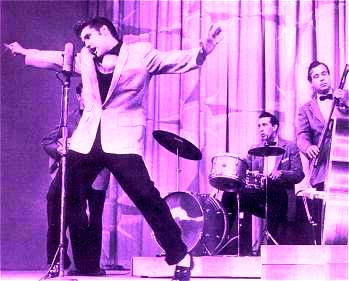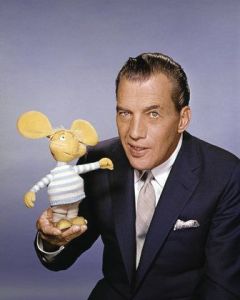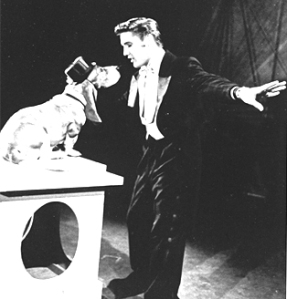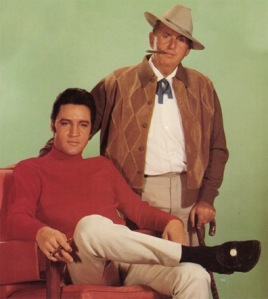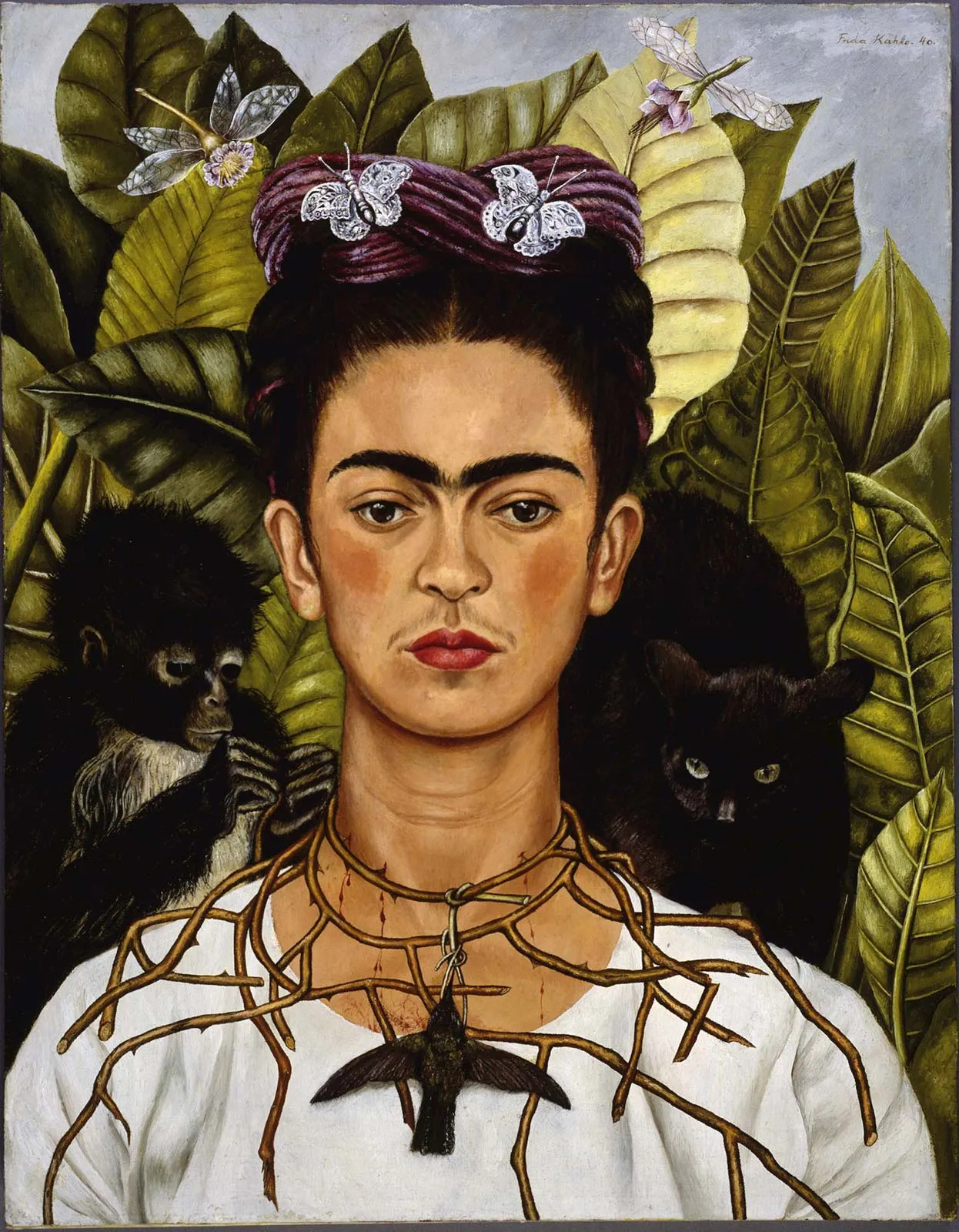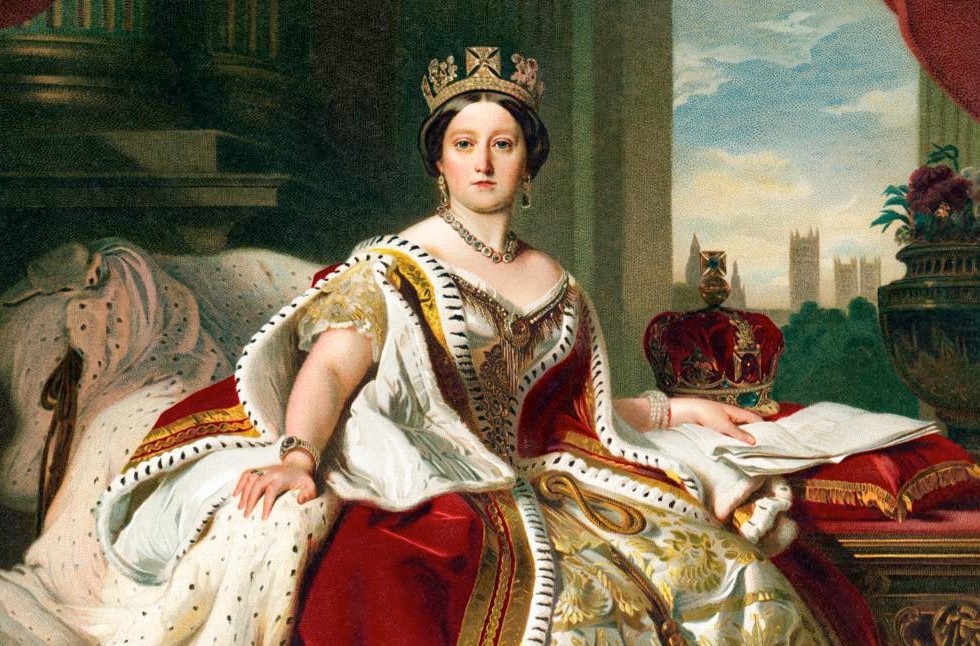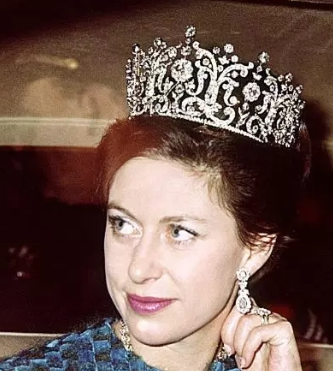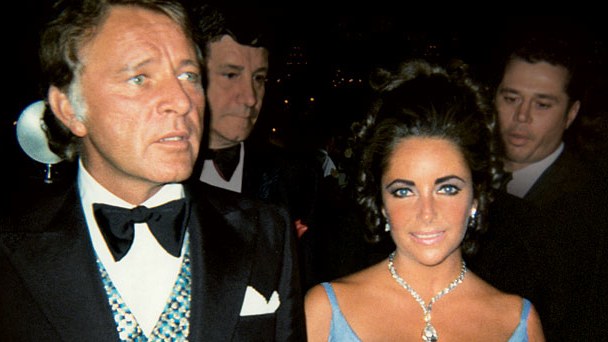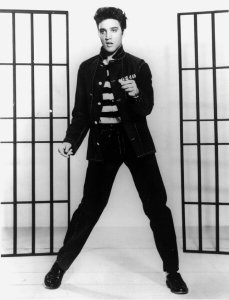
Elvis in his 1957 film, "Jailhouse Rock"
In my two previous posts, “Elvis the Pelvis” and “Elvis: Too Sexy for His Shirt,” I wrote about Elvis Presley and the TV appearances that made him a star. His hip-gyrating performance of “Hound Dog” on NBC’s June 5, 1956, “The Milton Berle Show,” created a huge new fan base and a storm of controversy. Moral crusaders tried to keep him off the air. Critics in the press labeled his performances “vulgar” and “obscene.” Elvis was dubbed, “Elvis the Pelvis.” Top-rated TV host Ed Sullivan vowed, “I wouldn’t have Presley on my show at any time,” as he considered Elvis unsuitable for family viewing.
In a New York radio interview, Elvis said, in his defense,
“Rock and roll music, if you like it, and you feel it, you can’t help but move to it. That’s what happens to me. I have to move around. I can’t stand still. I’ve tried it, and I can’t do it.”
As they say in show business, all publicity is good publicity. The Berle show drew such high ratings that comedian Steve Allen, not a fan of rock ‘n’ roll, rushed to book Elvis for “The Steve Allen Show” for July 1, 1956. “The Steve Allen Show” ran on NBC opposite its chief rival, “The Ed Sullivan Show” on Sunday 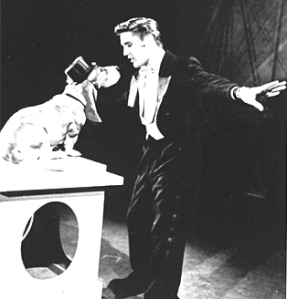 nights. It was Steve’s aim to defeat Ed in the TV ratings game.
nights. It was Steve’s aim to defeat Ed in the TV ratings game.
Steve wasn’t about to let Elvis strut suggestively on his program. He decided to introduce a “new Elvis,” one the whole family could love. He costumed Elvis in a top hat and tails and had him sing “Hound Dog” to a basset hound. With its sad eyes and droopy ears, the hound dog severely upstaged Elvis who was reduced to minimal movement.
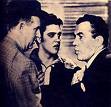
Colonel Tom Parker, Elvis, and Ed Sullivan
Elvis was reportedly angry with his treatment on Steve’s show, but the ratings were phenomenal. Elvis’ manager, the ruthless Colonel Tom Parker, was able to sign Elvis for three engagements on “The Ed Sullivan Show.” Ed offered Elvis the unprecedented amount of $50,000 for the three shows.
Ed Sullivan was asked to explain why he’d reversed his opinion of Elvis:
“What I said then was off the reports I’d heard. I hadn’t even seen the guy. Seeing the kinescopes, I don’t know what the fuss was all about. For instance, the business about rubbing the thighs. He rubbed one hand on his hip to dry off the perspiration from playing his guitar.”
Presley’s first Ed Sullivan appearance (September 9, 1956) was seen by some 55–60 million viewers, one out of every three Americans. On the third Sullivan show on January 6, 1957, Elvis sang only slow paced ballads and a gospel song. Nevertheless, for the first time, Elvis was shown to the television audience only ‘from the waist up.’ The conventional wisdom has been that Elvis was “cropped” at the request of TV host Sullivan to please network censors by hiding Elvis’ hip movements. However, this was Elvis’ third appearance on the show and Elvis’ first two appearances hadn’t been censored. He had been shown full-bodied both times before. It is more likely that Elvis’ notoriously greedy manager, Colonel Tom Parker, and not network censors or Ed Sullivan, who ordered that Elvis be shot from the waist up to generate publicity.
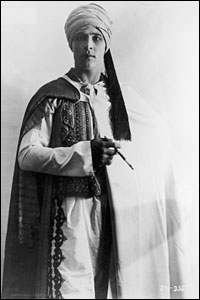
Italian-born actor Rudolph Valentino in the 1921 silent film, "The Sheik"
In spite of any misgivings about the controversial nature of his performing style, Ed Sullivan declared at the end of the third appearance that Presley was “a real decent, fine boy” and that they had never had “a pleasanter experience” on the show.
Below is a clip from Elvis’ 3rd appearance on “The Ed Sullivan Show,” January 6, 1957, – the official “Waist-Up Appearance” in which Elvis sings, “Too Much.” One biographer has suggested that Elvis’ spangled vest, heavily made-up eyes, and hair falling in his face made Elvis resemble the smoldering silent film idol Rudolph Valentino as he appeared in “The Sheik.” What do you think?

- Elvis in “Harum Scarum” (1965)
Whew! Waist-up or full-bodied, Elvis proves he’s got what it takes.
If Elvis really did want to dress up like Valentino in “The Sheik,” then, in 1965, he got his wish when he was cast as Johnny Tyronne in his nineteenth movie, “Harum Scarum.” Elvis’ wife, Priscilla Presley, recalls in her memoirs that Elvis liked the exotic Arab costumes so much that, after wrapping up filming for the day, Elvis wore his full make-up and costumes home from the movie set.
